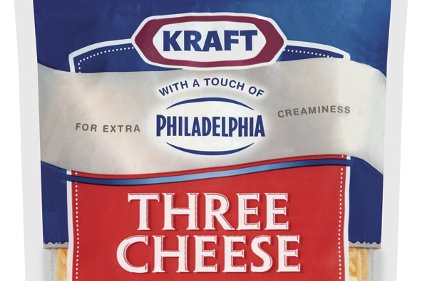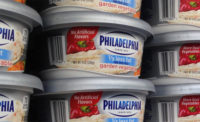Kraft Foods 'wages war' on waste

 Kraft Foods today reported that it is making “steady progress reducing the amount of manufacturing waste” the company produces. The results include reduction of the company’s environmental impact, better uses for waste and creation of new energy sources from manufacturing byproducts.
Kraft Foods today reported that it is making “steady progress reducing the amount of manufacturing waste” the company produces. The results include reduction of the company’s environmental impact, better uses for waste and creation of new energy sources from manufacturing byproducts.
The practices are worldwide and include the company’s cheese processing facilities as well as at its snacks and drinks plants. Kraft Foods, based in Northfield, Ill., is Dairy Foods 2011 Processor of the Year.
"We're waging war on waste, one plant at a time," said Christine McGrath, Vice President, Global Sustainability in a company statement. "Today, we have 36 facilities in 13 countries that send zero waste to landfills, and we've reduced our manufacturing waste by 50 percent since 2005. Our strategy is simple: generate less waste and find new uses for the waste we do produce. And our employees are doing just that."
For example, at Kraft’s Springfield, Mo., cheese plant, employees were recently recognized for their commitment to sustainability and accomplishments in waste reduction by the state’s Ozarks GreenScore Gold-level ranking program -- designed to educate and recognize area businesses and organizations as they adopt environmentally sustainable practices. Employees’ comprehensive recycling audit kick-started increased recycling across the plant and even identified materials to be re-used as an alternative fuel source. Together, they’ve eliminated about 400 tons of waste per year from scrap cheese, powders and packaging.
As Dairy Foods reported in its December 2011 issue, the Philadelphia cream cheese plant in Beaver Dam, Wis., partnered with the city in 2010 and 2011 to build an anaerobic digester that turns whey waste – a regular byproduct of cheesemaking – into biogas that generates electricity for the local power grid. The digester eliminates the need for whey disposal. This reduces solid waste and improves wastewater quality, which is a win-win for the plant, the city, its people and the environment.
Looking for a reprint of this article?
From high-res PDFs to custom plaques, order your copy today!





